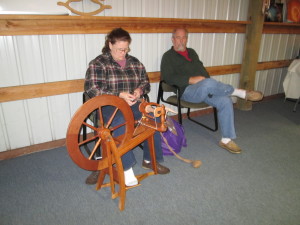With the first anniversary of the Highway 530 Mudslide looming ever closer, emotions are intense.
Words are powerful and can help us deal with emotions. This is why keeping a journal can be a healing process. By writing down the feelings we are experiencing, we can begin to deal with them rather than allowing them to eat away at us on the inside.
This can be especially true of grief. In your journal:
- Write a story about the person you lost
- Describe a happy memory with that person
- Write a conversation you wish you could have with that person. Try to include what you think they would tell you
- Describe your feelings
- List two ways you can honor the memory of your loved one
Another way journaling can help us heal is to reduce negative self-talk, increase positive self-talk and help us recognize achievements.
- Write down the negative self-talk. (ie: I’m not pretty enough, I’m not smart enough, and so on)
- Now write down five positive things about yourself ( ie: I’m a good person, I help others, I do my job well, Yesterday I phoned my parents because they like hearing from me, I like my hair (or whatever physical attribute you think is positive) and so on.
- Write down two ways you will use to improve yourself. Make these very specific and have a deadline for implementing or achieving. Do not use such things as I will lose ten pounds this month. Instead list it like this: I will make three healthy dinners this week. I will not eat bread for five days. I will read one book every month.
- On a clean page, at the end of the deadline, write down what you achieved, why you didn’t achieve the entire goal and how you intend to approach it now. BE SURE to INCLUDE ANY progress toward your goal, such as: I fixed two healthy dinners this week. I failed to schedule in enough time to fix the third dinner. This week I will write up my menu for three healthy dinners, go shopping for the ingredients at least the day before the dinner, and I will put the dinners on my daily schedule.
Memories capture moments in our hearts. By briefly recalling a memory, we can help heal ourselves. When you journal, you can capture your impression of the moment. The way your heart lifted when you watched the sunset; the way the brownie your sister made melted on your tongue; the sweet chocolate taste that flooded your mouth; or the warmth you felt when your spouse embraced you. Life can be rough at times and being able to return to a journal, leaf through it and recall these moments in poignant detail has the ability to pull our souls up from the darkest times, if only for a moment. Just remember:
Journaling helps in the healing process.
- We can capture a moment in time; how we saw and felt at that moment
- We can release negative emotions in a healthy manner and brainstorm better ways to handle situations
- We can increase positive emotions on a daily basis or whenever we need to
- We can accept our grief, validate our feeling of grief, and begin the process of healing.
One last word: I am NOT a psychiatrist, psychologist, therapist, medical doctor or other professional helper. This article is NOT medical advice or even professional advice. I am an author and have found ways to use writing to deal with emotion.
If you are feeling angry, depressed, unable to motivate, suicidal, or any strong negative emotion that lingers, PLEASE contact a professional. Depression is a common illness. It appears in many disguises such as a shortness of temper, a feeling of not wanting to get out of bed, a feeling that life isn’t worth it, not having an appetite, wanting to sleep a lot. It comes to all of us, just like the flu, at various times in our lives. It is a normal feeling, just like when a cold attacks you. However if it won’t go away, just like if that cold or flu lingers, you need professional help to rid yourself of the illness. DO NOT hesitate.
One of my favorite actors was Robyn Williams. But, Robyn Williams was unable to seek help to get through a particularly rough spot in his life, and a bright light left our world with his suicide. Do not remove your bright light. Believe me, you DESERVE help, even if you don’t think so right now.
Are you depressed?
If you identify with several of the following signs and symptoms, and they just won’t go away, you may be suffering from clinical depression.
- you can’t sleep or you sleep too much
- you can’t concentrate or find that previously easy tasks are now difficult
- you feel hopeless and helpless
- you can’t control your negative thoughts, no matter how much you try
- you have lost your appetite or you can’t stop eating
- you are much more irritable, short-tempered, or aggressive than usual
- you’re consuming more alcohol than normal or engaging in other reckless behavior
- you have thoughts that life is not worth living (seek help immediately if this is the case)
To read more about depression: http://www.theguardian.com/science/brain-flapping/2014/aug/12/robin-williams-suicide-and-depression-are-not-selfish





















































